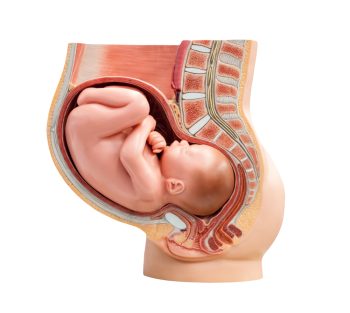For expecting mothers and fathers, labor is one of the most anticipated and yet feared parts of the pregnancy journey. Many women are surprised to find that labor isn’t a single event, but rather a process that can last hours or even days. But how can you predict labor and when it is likely to start?
While there’s no surefire way to know exactly when labor will begin, there are a few signs and symptoms that may give you some indication of what’s to come. In this blog post, we’ll explore some of these signs and offer tips on how to prepare for labor.
Your baby “drops”
Many women experience a noticeable change in the position of the baby in the weeks leading up to labor. This is known as “lightening” or “engagement,” and it occurs when the baby’s head moves lower into the pelvis.

You may notice that your belly looks lower or that you can breathe more easily. This shift in position can also put more pressure on your bladder, causing more frequent trips to the bathroom.
Braxton Hicks contractions
Braxton Hicks contractions are often called “practice” contractions because they’re your body’s way of preparing for labor. These contractions are usually not painful and don’t progress into real labor, but they may become more frequent and intense as your due date approaches. Pay attention to how often they’re occurring and whether they become stronger over time.

Increased vaginal discharge
In the days or weeks leading up to labor, you may notice an increase in vaginal discharge. This mucus-like discharge is known as the “mucus plug,” and it helps to protect the baby and the uterus from infection. You may notice some blood in the discharge, which is a sign that your cervix is beginning to dilate.

Your water breaks
While it’s a dramatic event in movies and TV shows, most women don’t experience their water breaking as their first sign of labor. In fact, only about 15% of women have their water break before they go into labor.

If your water does break, it’s important to call your doctor or midwife right away, as there’s a risk of infection if labor doesn’t begin within a certain timeframe.
“Nesting” behavior
Many women experience a burst of energy and motivation in the days or weeks leading up to labor. This is known as “nesting,” and it’s your body’s way of preparing for the new baby. You may feel an overwhelming urge to clean and organize your home, or you may find yourself enjoying tasks that you wouldn’t normally enjoy. Take advantage of this burst of energy to get ready for the baby’s arrival!
While there’s no guaranteed way to predict when labor will start, these signs and symptoms can give you a good indication of what’s to come. The most important thing you can do is to be prepared and have a plan in place for when labor does begin.
Talk to your doctor or midwife about what to expect and what you should do if you experience any of these signs. Most importantly, remember that every labor and delivery is unique, and there’s no “right” way to give birth. Focus on staying healthy and taking care of yourself and your baby, and you’ll be ready for whatever comes your way.


